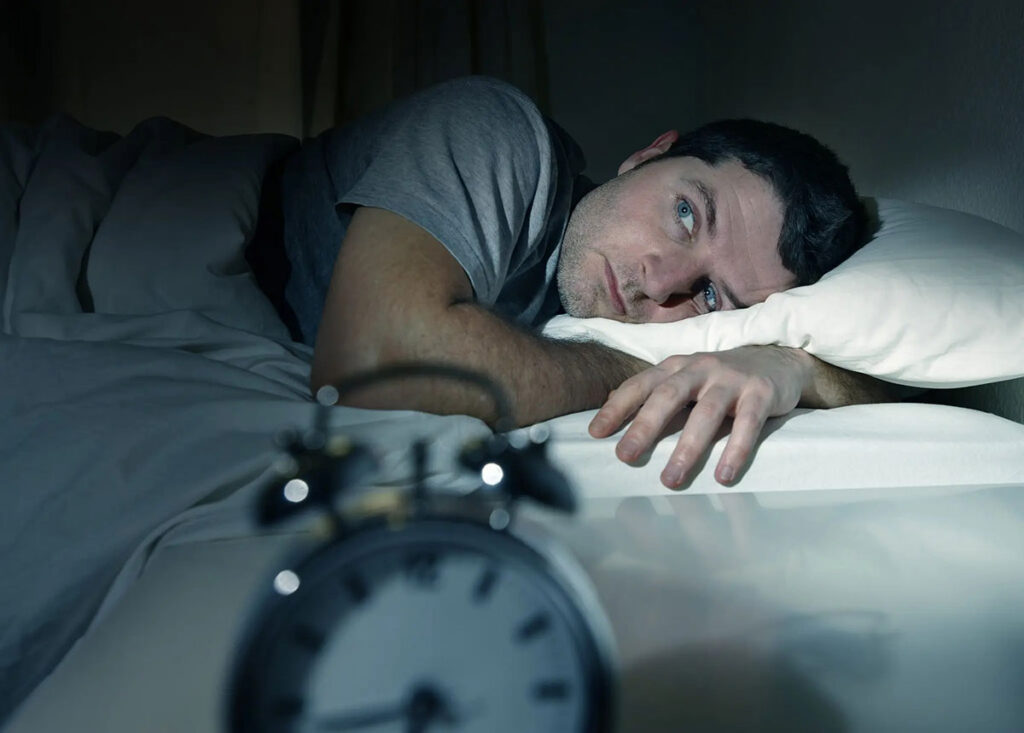As a high-performing entrepreneur, you often juggle numerous responsibilities, making the pursuit of sleep optimization crucial for your success. Quality sleep fuels your creativity, enhances focus, and boosts productivity, directly impacting your professional performance. Understanding your individual sleep needs is the first step towards achieving restorative rest. By exploring the science behind sleep cycles and establishing a consistent sleep schedule, you can create an environment conducive to a rejuvenating night’s sleep. Prioritizing effective sleep optimization strategies can ultimately transform your approach to work and life.
Understanding the Importance of Sleep
Sleep serves as a foundational pillar for both physical and mental well-being, especially for high-performing entrepreneurs. As we delve into the significance of sleep optimization, it’s essential to recognize how vital restorative sleep is for overall productivity and decision-making abilities.
Consider the following key points:
- Cognitive Functioning: Adequate sleep enhances memory retention, problem-solving skills, and creative thinking. Entrepreneurs often rely on these abilities to innovate and strategize effectively.
- Emotional Regulation: Quality sleep influences mood stability. Sleep optimization minimizes stress and anxiety, empowering entrepreneurs to tackle challenges head-on without emotional hindrance.
- Physical Health: Sleep supports immune function, weight management, and hormone regulation. During profound sleep, the body repairs itself, which is crucial for entrepreneurs facing demanding schedules.
- Performance and Productivity: Studies indicate that lack of sleep can lead to reduced performance, similar to the impairment caused by alcohol consumption. Prioritizing sleep optimization directly contributes to enhanced efficacy and focus during critical business hours.
In summary, by understanding the importance of sleep, entrepreneurs can significantly boost their performance. Recognizing sleep as an integral part of their routine will enable them to harness its benefits for both personal and professional success. As you embark on your journey towards sleep optimization, remember that sleep is not merely a luxury; it is an essential investment in your future.

Identifying Your Individual Sleep Needs
Understanding your unique sleep requirements is vital for effective sleep optimization. Each person’s sleep needs can vary significantly based on factors such as age, lifestyle, and overall health. Here are some essential steps to help you identify your specific needs:
- Assess Your Sleep Duration: Most adults require between 7 to 9 hours of sleep per night. Monitor how you feel after different amounts of sleep to find your optimal range.
- Recognize Your Patterns: Keep a sleep diary for at least two weeks. Note when you go to bed, when you wake up, and how rested you feel. This record will reveal patterns that indicate your ideal sleep length.
- Consider Energy Levels: Pay attention to your energy levels throughout the day. If you frequently feel sluggish, it may indicate that you need more rest or different sleep quality.
- Listen to Your Body: Your personal sleep needs can change over time due to stress, work demands, or health changes. Regularly assess how you feel and adjust your sleep strategy accordingly.
- Test Different Sleep Schedules: Experiment with varying your sleep and wake times, particularly if you have a flexible schedule. This testing can lead you to a more tailored approach to sleep optimization.
By embracing these indicators, you’ll be better equipped to create a sleep plan that aligns with your individual needs, boosting your productivity and performance as an entrepreneur.
The Science Behind Sleep Cycles
Understanding the science behind sleep cycles is crucial for sleep optimization, especially for high-performing entrepreneurs. Sleep isn’t a singular phase but consists of multiple stages, each playing a vital role in our overall well-being.
- NREM (Non-Rapid Eye Movement) Sleep: This phase is further divided into three stages:
- Stage 1: Light sleep and transition between wakefulness and sleep; lasts a few minutes.
- Stage 2: Deeper sleep where the body begins to relax; heart rate slows, and body temperature drops.
- Stage 3: Deep sleep, critical for physical recovery and growth; brain waves slow down significantly.
- REM (Rapid Eye Movement) Sleep: In this stage, the brain becomes highly active, dreams occur, and essential cognitive functions such as memory consolidation take place.
Each cycle lasts approximately 90 minutes and repeats about four to six times per night.
Importance for Entrepreneurs:
- Cognitive Functions: High-quality sleep enhances problem-solving skills, creativity, and decision-making.
- Emotional Regulation: REM sleep aids in managing stress and anxiety, vital for entrepreneurs facing daily challenges.
Incorporating knowledge of sleep cycles into your routine can significantly support your sleep optimization efforts, ensuring that you’re performing at your peak. By prioritizing both NREM and REM sleep, you can enhance your productivity and clarity in your entrepreneurial journey.
Creating a Sleep-Conducive Environment
To achieve effective sleep optimization, the environment where you rest plays a crucial role. A well-designed sleeping area can significantly enhance your sleep quality and overall health. Here are some key factors to consider in creating your optimal sleep environment:
- Temperature Control: Aim for a cooler room temperature, ideally between 60-67°F (15-19°C). This range helps regulate your body temperature and promotes better sleep.
- Lighting: Ensure your bedroom is dark, as darkness signals your brain to produce melatonin, the sleep hormone. Use blackout curtains or a sleep mask to block external light sources.
- Noise Level: Minimize disruptive sounds. Consider using white noise machines or earplugs if necessary to create a quieter atmosphere.
- Bedding Quality: Invest in a comfortable mattress and pillows. Your body should feel fully supported; test different firmness levels to find what works best for you.
- Aromatherapy: Utilize calming scents like lavender or chamomile, which can promote relaxation and serve as an excellent aid for sleep optimization.
- Declutter: Keep your sleep space organized and free from distractions. A tidy environment fosters a peaceful mindset conducive to relaxation.
By intentionally crafting a serene sleep setting, you significantly enhance your potential for effective sleep optimization, allowing you to wake refreshed and ready to conquer your entrepreneurial goals.

Implementing a Consistent Sleep Schedule
Establishing a consistent sleep schedule is crucial for effective sleep optimization, particularly for high-performing entrepreneurs. Adhering to a regular sleep routine not only enhances sleep quality but also boosts productivity and overall well-being. Here’s how to implement and benefit from a consistent sleep schedule:
- Set a Fixed Wake-Up Time: Regardless of work commitments, aim to wake up at the same time every day. This helps regulate your body’s internal clock, leading to enhanced alertness and energy levels.
- Determine Your Ideal Sleep Duration: Most adults require 7-9 hours of sleep. Identify your individual needs and work backward to establish a bedtime that allows for ample rest.
- Create Pre-Sleep Rituals: Engaging in calming activities before bed can signal to your body that it’s time to wind down. Consider reading, meditating, or gentle stretching.
- Limit Weekend Variation: While it’s tempting to sleep in, maintaining your wake-up time over weekends stabilizes your sleep cycle, supporting consistent sleep optimization.
- Track Your Progress: Use a sleep diary or app to monitor your sleep patterns. Adjust your schedule based on your findings to improve your routine continuously.
By prioritizing a consistent sleep schedule, you harness the power of sleep optimization, ultimately leading to sustained high performance both in business and life.
Nutrition Strategies for Better Sleep
When it comes to sleep optimization, what you eat plays a crucial role in your ability to drift off and stay asleep. Entrepreneurs juggling demanding schedules often overlook nutrition, yet implementing specific strategies can significantly enhance sleep quality. Here are some effective nutrition tips:
- Incorporate Sleep-Enhancing Foods:
- Complex Carbohydrates: Foods like whole grains and legumes can increase serotonin levels, promoting relaxation.
- Dairy Products: Milk and yogurt are rich in calcium, which helps the brain convert tryptophan into melatonin, aiding sleep.
- Limit Caffeine and Sugar:
- Cut off caffeine intake by early afternoon. Caffeine can stay in your system longer than you think, disrupting sleep cycles.
- Reduce sugar consumption, especially in the evening, to avoid spikes in energy that can interfere with your ability to wind down.
- Stay Hydrated, but not Overhydrated:
- Proper hydration is essential for sleep optimization, but heavy drinking right before bed can lead to frequent bathroom trips during the night. Aim to hydrate throughout the day.
- Mind Your Timing:
- Eat your last meal at least 2-3 hours before bedtime. This allows your digestive system to settle and reduces the likelihood of discomfort that can disturb sleep.
By strategically managing your diet, you can support your body’s natural sleep rhythms, making significant strides towards effective sleep optimization. Implement these nutrition strategies to enhance not only your sleep but your overall productivity and performance.
If you want to buy sleep optimization aids from Amazon, please click here.
The Role of Exercise in Sleep Quality
Exercise plays a pivotal role in sleep optimization. It not only enhances physical health but also significantly improves sleep quality. Engaging in regular physical activity can help you fall asleep faster and enjoy deeper sleep. Below are key insights on how exercise contributes to better sleep:
- Increases Sleep Duration: Studies show that individuals who exercise consistently report increased total sleep time. Aim for at least 150 minutes of moderate aerobic activity weekly to reap the benefits.
- Boosts Sleep Efficiency: Regular exercise helps synchronize your body’s internal clock, leading to improved sleep efficiency. This means you’ll spend more time in the restorative phases of sleep.
- Reduces Insomnia Symptoms: Exercise can alleviate symptoms of insomnia. It promotes relaxation and helps manage stress, which are critical for achieving restful sleep.
- Enhances Mood and Reduces Anxiety: Physical activity releases endorphins, which can combat anxiety and depression. A calmer mind translates into better sleep quality.
Consider this comparison to understand the effects of different types of exercise on sleep:
| Type of Exercise | Benefits for Sleep Quality |
|---|---|
| Aerobic (e.g., running, cycling) | Promotes deeper sleep and longer duration |
| Strength Training | Reduces insomnia symptoms and enhances relaxation |
| Yoga | Lowers stress levels and fosters mindfulness |
To maximize sleep optimization, incorporate exercise into your daily routine, but steer clear of vigorous workouts close to bedtime. Aim for morning or afternoon sessions to ensure the best sleep quality at night.

Mindfulness and Relaxation Techniques
Incorporating mindfulness and relaxation techniques into your daily routine can significantly enhance your sleep optimization efforts. These practices help calm the mind, reduce stress, and prepare your body for a restful night. Here are some effective techniques to consider:
- Meditation: Regular meditation fosters a deep state of relaxation, reducing anxiety and promoting better sleep patterns. Just 10 minutes a day can make a difference.
- Deep Breathing Exercises: Focus on your breath by inhaling deeply through your nose and exhaling through your mouth. This simple technique activates the body’s relaxation response, making it easier to drift off.
- Progressive Muscle Relaxation: Tense and then relax each muscle group, starting from your toes and working up to your head. This method alleviates physical tension and promotes a sense of calm, conducive to sleep optimization.
- Yoga: Gentle yoga or stretching before bed can help release muscle tension and clear the mind of racing thoughts. Aim for yoga sequences specifically designed for relaxation.
- Gratitude Journaling: Before bed, write down three things you’re grateful for. This practice shifts your focus from stressors to positive aspects of your life, fostering a peaceful mindset conducive to sleep.
By integrating these mindfulness practices into your evening routine, you can significantly enhance your sleep optimization efforts, ensuring you awaken refreshed and ready to tackle the challenges of entrepreneurship.
Utilizing Technology for Sleep Optimization
In today’s fast-paced world, technology offers unique opportunities for sleep optimization. Using the right tools can help you improve your sleep quality and overall performance. Here are several effective strategies:
- Sleep Tracking Devices: Wearable technology, like smartwatches or fitness trackers, can monitor your sleep patterns. They provide insights into sleep duration, quality, and cycles, allowing you to adjust your habits accordingly.
- Sleep Apps: Many applications offer features such as soothing sounds, guided meditations, or sleep stories. These can help facilitate relaxation and make it easier to fall asleep.
- Blue Light Blockers: With screens present in our daily lives, utilizing apps or devices that filter blue light can significantly impact your sleep. Limiting exposure to blue light before bedtime enhances melatonin production, promoting better sleep optimization.
- Smart Lighting: Consider smart bulbs that adjust color temperature based on the time of day. Warmer light in the evening can signal your body that it’s time to wind down.
- White Noise Machines: These devices can mask disruptive sounds, creating a more tranquil sleeping environment. They help in maintaining focus on deep sleep cycles, thus optimizing sleep quality further.
By leveraging these technologies effectively, you can create a personalized approach to sleep optimization, ensuring that you wake up refreshed and ready to conquer the day.
Common Sleep Disruptors and How to Combat Them
Identifying common sleep disruptors is crucial for effective sleep optimization. Here are the primary culprits and strategies to counter them:
- Blue Light Exposure: Evening screen time from phones and computers can hamper melatonin production. Combat this by:
- Utilizing blue light filters on devices.
- Setting screens to night mode at least an hour before bed.
- Caffeine Consumption: Caffeine can remain in your system for hours, affecting your ability to fall asleep. Try to:
- Limit caffeine intake after midday.
- Opt for herbal teas or decaffeinated beverages in the evening.
- Stress and Anxiety: Racing thoughts can keep you awake. To combat these feelings:
- Practice mindfulness or relaxation techniques before bed, such as deep breathing or meditation.
- Consider journaling to clear your mind of clutter.
- Inconsistent Sleep Schedule: Varying your sleep time disrupts circadian rhythms. To establish stability:
- Go to bed and wake up at the same time every day, even on weekends.
- Gradually adjust your schedule if necessary, shifting bedtime by 15-30 minutes.
- Uncomfortable Sleep Environment: A noisy or uncomfortable space can prevent restful sleep. Ensure your bedroom is:
- Dark, quiet, and cool, ideally between 60-67°F.
- Equipped with comfortable mattresses and pillows suited to your preferences.
By addressing these common sleep disruptors, you pave the way for better sleep optimization and, consequently, enhanced performance in your entrepreneurial endeavors.

Building a Sleep Routine that Works for You
Creating an effective sleep routine is essential for sleep optimization, especially for high-performing entrepreneurs who juggle multiple responsibilities. Here’s how to build a tailored sleep routine that aligns with your individual needs:
- Set a Consistent Sleep Schedule
- Go to bed and wake up at the same time every day, even on weekends. This helps regulate your body’s internal clock.
- Create a Pre-Sleep Ritual
- Engage in calming activities before bed, such as reading, listening to soothing music, or practicing mindfulness. Avoid screens at least 30 minutes prior to sleep.
- Limit Naps
- If naps are necessary, keep them short (20-30 minutes) and avoid napping late in the day to maintain nighttime sleep quality.
- Optimize Your Sleep Environment
- Ensure your bedroom is dark, quiet, and cool. Consider blackout curtains, white noise machines, or comfortable bedding to enhance your sleeping conditions.
- Adjust Based on Feedback
- Pay attention to how you feel after various sleep routines. Adjust your schedule, rituals, or environment based on what aids your ultimate goal: improved sleep optimization.
Tip: Track your sleep with a journal or app to identify patterns and make necessary adjustments. Remember, consistency is key to building a sleep routine that not only works but also boosts your productivity and performance.
Frequently Asked Questions
What are the key factors affecting sleep quality for entrepreneurs?
Several key factors can significantly influence sleep quality for entrepreneurs, including stress levels, work-life balance, and screen time before bed. High stress from work can lead to an overactive mind at night, making it harder to fall asleep. Additionally, an imbalanced work-life ratio often results in late-night work sessions that disrupt natural sleeping patterns. Lastly, exposure to blue light from screens can inhibit melatonin production, making it challenging to relax and prepare for sleep.
How much sleep do high-performing entrepreneurs typically need?
High-performing entrepreneurs typically require between 7 to 9 hours of sleep to function at their best. The exact amount may vary depending on individual needs, age, and wellness factors. Quality of sleep is just as important as quantity, as restorative sleep cycles help improve cognitive function, decision-making, and overall productivity. Consistently achieving this amount of rest allows entrepreneurs to maintain the energy levels necessary for their demanding schedules.
What are some effective bedtime routines that can enhance sleep quality?
Effective bedtime routines include practices that promote relaxation and reduce cortisol levels before sleep. Techniques such as reading a book, practicing meditation or deep breathing exercises, taking a warm bath, and setting a fixed sleep schedule can all contribute to better sleep. Additionally, minimizing exposure to electronic devices at least an hour before bed helps signal to the brain that it’s time to unwind. These routines can create a conducive environment for restorative sleep.
Are there any dietary considerations that can impact sleep for entrepreneurs?
Yes, dietary choices significantly impact sleep quality. Consuming heavy meals, caffeine, or alcohol close to bedtime can disrupt sleep cycles and lead to insomnia. Instead, entrepreneurs should focus on a balanced diet rich in nutrients, incorporating foods high in magnesium and melatonin, such as nuts, seeds, and bananas. Staying hydrated throughout the day, while avoiding excessive liquids before bed, also contributes positively to sleep quality and promotes a restful night.
How does exercise influence sleep quality for busy entrepreneurs?
Exercise plays a vital role in enhancing sleep quality, especially for busy entrepreneurs. Regular physical activity helps regulate the body’s circadian rhythms and can reduce feelings of stress and anxiety, which are common among entrepreneurs. Engaging in moderate aerobic exercise for at least 30 minutes most days can lead to deeper, more restorative sleep. However, it’s essential to avoid vigorous workouts close to bedtime, as they may energize the body and delay sleep onset.
